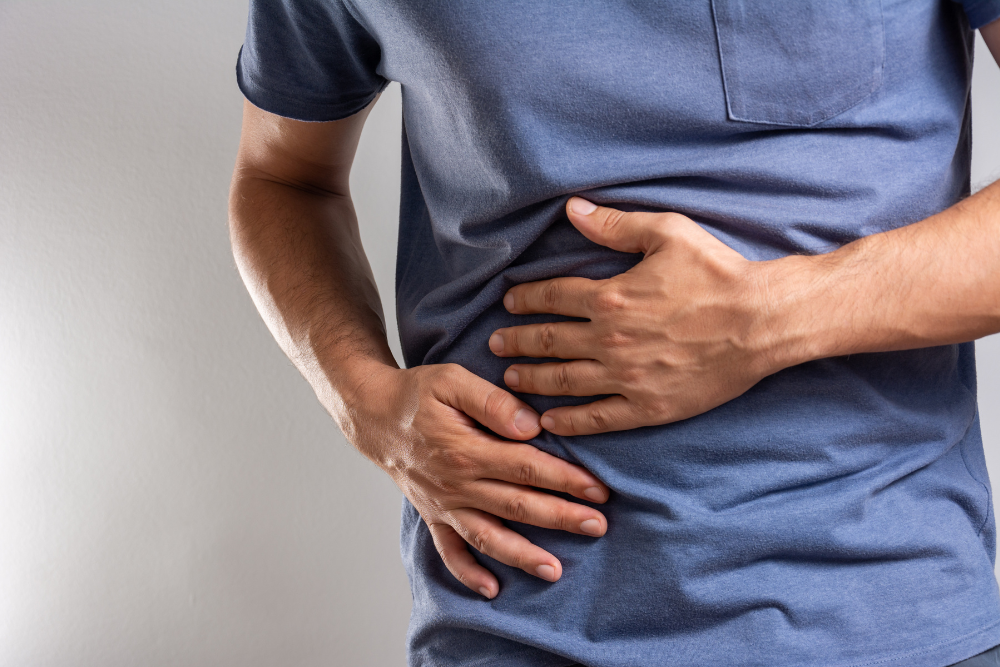Travel constipation affects up to 40% of travelers, with symptoms typically beginning within 24-48 hours of departure. This digestive disruption occurs due to changes in routine, dehydration, altered eating patterns, and stress all of which significantly impact normal bowel function.
This guide provides evidence-based strategies to prevent and manage travel constipation, plus our 2-minute assessment to identify your unique digestive triggers and create a personalized travel wellness plan.

Table of contents
Why Travel Disrupts Your Digestive System
Travel constipation isn't just inconvenient, it's a predictable physiological response to multiple environmental and behavioral changes. Research published in the Journal of Travel Medicine shows that digestive disruption occurs in nearly half of all travelers, with constipation being the most common complaint.
1. Circadian Rhythm Disruption
Your digestive system operates on a 24-hour cycle closely tied to your internal clock. Time zone changes, altered sleep schedules, and irregular meal timing disrupt the natural gastrocolic reflex the signal that triggers bowel movements after eating.
2. Dehydration and Electrolyte Imbalance
Air travel, climate changes, and reduced fluid intake significantly impact intestinal motility. Studies show that even mild dehydration (2-3% body weight loss) can slow colonic transit time by up to 30%.
3. Dietary Changes and Reduced Fiber Intake
Travel meals are typically lower in fiber and higher in processed foods. Restaurant meals, airport food, and unfamiliar cuisines often lack the 25-35 grams of daily fiber needed for healthy bowel function.
4. Stress and Anxiety Response
Travel stress activates the sympathetic nervous system, which suppresses digestive function. Elevated cortisol levels directly slow intestinal motility and reduce digestive enzyme production.
5 Evidence-Based Strategies to Prevent Travel Constipation

1. Optimize Hydration with Strategic Timing
Proper hydration is crucial for maintaining normal bowel function during travel, but timing matters more than total volume. Start by drinking 16-20 oz of water 2 hours before departure, this gives your body time to absorb the fluid without creating urgent bathroom needs during takeoff or the first hour of driving.
During travel, maintain consistent intake of 6-8 oz every hour. For flights longer than 4 hours, add electrolyte supplements to replace minerals lost through cabin air circulation. Keep a water bottle visible as a constant reminder, and avoid alcohol and excessive caffeine which accelerate dehydration.
2. Maintain Fiber Intake and Natural Schedule
Your digestive system thrives on routine, and disrupting fiber intake with meal timing is the fastest way to trigger travel constipation. Pack individual fiber supplements like psyllium husk or methylcellulose as insurance against unpredictable food options. Portable high-fiber snacks- almonds, dried fruit, whole grain crackers provide reliable backup when restaurants offer limited healthy choices.
Protecting your body's natural rhythm is equally important. Wake up at consistent times even with time zone changes, and eat breakfast within 2 hours of waking to trigger the morning gastrocolic reflex. Allow 15-30 minutes after meals for bathroom opportunities, and never delay when you feel the urge this weakens your body's natural signals.

3. Use Movement to Stimulate Motility
Physical activity directly stimulates intestinal contractions and reduces transit time even gentle movement makes a significant difference.
Walk for 10 minutes every 2 hours during long drives
Do ankle pumps and calf raises during flights
Take stairs instead of elevators at airports/hotels
Practice gentle abdominal massage: circular motions clockwise for 5 minutes
4. Strategic Supplement Support
Certain supplements provide reliable backup when travel disrupts your normal digestive routine. Start magnesium supplementation (200-400mg) two days before departure it draws water into the intestines and softens stool naturally. Continue probiotics throughout your trip and for 3-5 days after return to maintain gut bacteria balance disrupted by travel stress and dietary changes.
Pack emergency options for when prevention isn't enough. Psyllium husk (5-10g) works as a bulk-forming fiber within 12-72 hours, while docusate sodium provides gentle stool softening for immediate relief. Always use psyllium with adequate water (8-10 oz per dose), and avoid stimulant laxatives unless absolutely necessary they can cause dependency and cramping.

Still Struggling with Travel Constipation Despite These Strategies?
Claisen is a 100% online platform designed to provide personalized relief for constipation, bloating, and digestive discomfort , so you can travel confidently without digestive worry.
With Claisen, you can skip the guesswork and get targeted relief!
5. Manage Travel Stress and Create Portable Routines
Stress directly impacts digestive function through the gut-brain axis, while consistent bathroom habits help maintain the gastrocolic reflex even in unfamiliar environments.
- Set aside 15-20 minutes after breakfast for bathroom time
- Use the same position: feet flat on floor or footstool
- Don't strain, this can worsen constipation and cause hemorrhoids
- Research bathroom locations at airports/rest stops in advance
Reduce travel-related stress through simple techniques. Practice deep breathing exercises during travel delays, maintain regular sleep schedules as much as possible, and limit anxiety-provoking news consumption while traveling. Plan ahead for success by carrying travel-size toilet paper and wet wipes, and download noise-masking apps if privacy concerns create anxiety.

The Most Effective Pre-Travel Protocol
3 Days Before Departure:
- Begin taking magnesium supplement (200mg daily)
- Increase fiber intake gradually to 30-35g daily
- Establish consistent morning bathroom routine
- Start probiotic supplementation
Day of Travel:
- Eat high-fiber breakfast 2 hours before departure
- Hydrate adequately but strategically time fluids
- Pack travel constipation kit: fiber supplements, electrolytes, magnesium
- Use bathroom before boarding/starting long drive
During Travel:
- Maintain hydration schedule (6-8 oz hourly)
- Move every 2 hours for at least 10 minutes
- Don't skip meals or rely solely on processed foods
- Practice stress-reduction techniques
This article and its contents have been medically reviewed by Aditya Jain (MD at Harvard Medical School and Op-Ed Fellow at Doximity).
How long does travel constipation typically last?
Travel constipation usually resolves within 2-4 days of returning to normal routine. However, severe cases or those involving significant time zone changes may persist for up to a week. Implementing preventive strategies can reduce duration to 1-2 days.
Why do I get constipated even on short trips?
Even brief travel can disrupt your digestive routine. Changes in water source, meal timing, stress levels, and bathroom environment can trigger constipation within 24 hours. Some people are more sensitive to routine disruption than others.
Is it safe to take laxatives while traveling?
Gentle options like magnesium or psyllium husk are generally safe for travel. Avoid stimulant laxatives (senna, bisacodyl) unless necessary, as they can cause cramping and dependency. Always start with the gentlest effective option and ensure adequate hydration.
Should I avoid certain foods before traveling?
Avoid foods that typically cause you digestive issues. Generally, limit high-fat, heavily processed, or unfamiliar foods 24 hours before travel. Focus on familiar, high-fiber options and adequate hydration instead of restrictive elimination.










